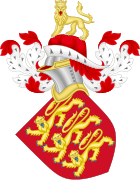
Back Siarter y Fforest Welsh Carta del Bosque Spanish Charter of the Forest Finnish Charte des forêts French Carta della Foresta Italian Лесная хартия Russian Лісова Хартія Ukrainian 森林宪章 Chinese
| Act of Parliament | |
 | |
| Long title | Carta de Foresta |
|---|---|
| Citation | 25 Edw. 1 |
| Dates | |
| Royal assent | 1297 |
| Other legislation | |
| Amended by | Criminal Statutes Repeal Act 1827, Criminal Statutes (Ireland) Repeal Act 1828, Criminal Law (India) Act 1828 |
| Repealed by | Wild Creatures and Forest Laws Act 1971 |
| Relates to | Magna Carta (1297), Confirmation of the Charters (1297), A Statute Concerning Tallage (1297) |
Status: Repealed | |
| Text of the A Statute Concerning Tallage (1297) as in force today (including any amendments) within the United Kingdom, from legislation.gov.uk. | |

The Charter of the Forest of 1217 (Latin: Carta de Foresta or Charta Forestæ) is a charter that re-established for free men rights of access to the royal forest that had been eroded by King William the Conqueror and his heirs. Many of its provisions were in force for centuries afterwards.[1] It was originally sealed in England by the young King Henry III, acting under the regency of William Marshal, 1st Earl of Pembroke.[2]
It was in many ways a companion document to the Magna Carta.[3] The charter redressed some applications of the Anglo-Norman Forest Law that had been extended and abused by King William Rufus.
- ^ Henry III's Charter of the Forest: facsimile and translation
- ^ "William Marshal earl of Pembroke, ruler of us and of our kingdom" is mentioned by name.
- ^ Standing, Guy (29 August 2019). Plunder of the Commons: A Manifesto for Sharing Public Wealth. Penguin UK. p. 25. ISBN 978-0-241-39633-9. OCLC 1083358125.
© MMXXIII Rich X Search. We shall prevail. All rights reserved. Rich X Search